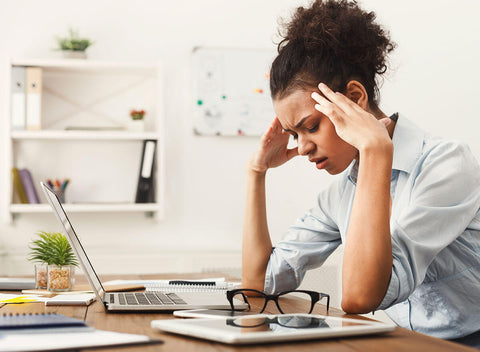Caffeine gets you up in the morning and keeps you buzzing through the day, but caffeine also has complex and intriguing effects on the brain. Scientists are increasingly learning that the sophisticated substance interacts with the human brain in interesting, even unexpected, ways; a study in 2012 found that it binds to particular receptors in the brain that regulate the metabolism, body clock and heart. But if you’ve ever wondered just what caffeine does to your nervous system, the answer is more complicated than you think.
Caffeine on its own was first isolated by a German chemist in the 1700s, but in its various forms it’s been part of many different cultures for millennia, from tea to various forms of coffee. What we enjoy today, in its cold-brewed, nitro-chilled, single-origin form, isn’t a world away from the drinks enjoyed by distant ancestors, who all likely adopted it for its stimulating qualities. Modern science has given us a window into the at times peculiar ways in which caffeine influences us neurologically, from our wakefulness to our memory and vulnerability to certain illnesses.
Here are the various surprising and really cool ways caffeine affects your brain for the better, according to science.
1
It Changes The Way You Remember Words
Consuming 200mg of caffeine, the equivalent of about two cups of coffee, before a word memory task helped people to remember words with positive associations seriously quickly, according to a study from 2012 published in PLOS ONE. Verbal short-term memory is an interesting part of the brain and still mysterious to researchers, but a dose of caffeine definitely boosted participants’ ability to recall happy words, though not ones with negative associations. If you’re trying to remember your wedding anniversary, this might be a good trick to try.
2
It Might Change Your Tastes
A fascinating study in 2013 looked at how caffeine affects behavior and skills across the genders, and found a series of different things. One of the most interesting, though, was that taking caffeine along with an unfamiliar taste — in this case, yogurt flavored with unusual tastes like maple, peppermint, or pumpkin pie — meant that people adapted to and liked the new taste more quickly.
It’s not clear why this was, but it’s possible that stimulation of the brain by caffeine made it more receptive to the peculiar and unfamiliar taste of the yogurt. This is one you can try at home, but maybe ask your roommates before you start plying them with cups of joe and mint-flavored yogurt.
3
It Could Reduce Brain Plaque
A number of studies have shown that caffeine seems to have a reductive effect on brain plaque, the substance that builds up in brains that is linked to Alzheimer’s disease and dementia. But the findings haven’t been completely agreed upon, and research in 2018 suggests that caffeine might not be good for people with Parkinson’s and degenerative neurological issues, because it may make their symptoms worse.
4
It Enhances Memory
Johns Hopkins researchers in 2014 found that caffeine has a memory-boosting effect for up to 24 hours after you consume it. They put participants through a tricky memory test where they were shown images on one day and then a series of different ones the next day, and asked to identify pictures similar to those they’d seen the day before. They took caffeine after the first day’s work, and it helped them remember and identify those images well into the second day. This is why caffeine may seem to give you a leg up when you’re studying; it seems to have a positive effect on your ability to embed things in longer-term memory.
5
It Increases “Brain Entropy”
This doesn’t sound like a good thing, but be assured, it is. Entropy in the brain is “intense complexity and irregular variability in brain activity from one moment to the next”, according to the British Psychological Society, and is a signal that the brain is operating at a high level (you show low entropy when you’re asleep). A study in 2018 showed for the first time that a dose of caffeine boosts entropy in the brain, which in turn makes you better at mental tasks, particularly those related to vision, motor skills, reasoning and words. The brain is being given a kick-start by your cup of joe in ways we’re only just beginning to understand.
6
It Interacts Like Cannabis — But Goes The Opposite Way
A study in 2018 revealed that caffeine has an interesting effect on our body’s endocannabinoid system, the part that cannabis stimulates. While cannabis tends to ramp up activity in this system caffeine was shown in the study to calm it down. The effect? While cannabis creates a kind of slowing or depressive effect on the brain, caffeine ramps it up, using the same sorts of pathways.
7
Combining It With Sugar Improves Your Thinking
Coffee and a donut? Don’t mind if I do. And there’s a neurological reason why so many people take their caffeine with a sugary treat. A study in 2010 found that caffeine and glucose taken together can actually increase the efficiency of brain activity. When you experience the spike of the two, your working memory gets better and your sustained attention improves, while your brain uses less energy to produce its gold medal-winning performance. Something to think about next time you’re feeling like you can’t possibly get a task done in time.
8
It Affects Your Serotonin
Studies show that caffeine affects serotonin. When you ingest caffeine, it eventually crosses the blood-brain barrier where it targets adenosine receptors, board-certified psychiatrist Dr. Mimi Winsberg, M.D., co-founder and chief medical officer of Brightside tells Bustle. “Adenosine is a molecule that has a generally sedating effect on the brain, and so by occupying the adenosine receptors, that sets off a series of chemical events in the brain,” she says. “
While some studies detect this chemical fluctuation, psychiatrist and nutritional specialist Dr. Uma Naidoo, M.D., says the mechanisms of how caffeine actually affects serotonin are largely unknown. In other words, there isn’t much research out there yet to prove how much caffeine it takes to elevate these levels or how high the substance increases serotonin — but it does, at the very least, release those feel-good chemicals in the brain.
Studies referenced:
Chang D, et al., (2018), Caffeine Caused a Widespread Increase of Resting Brain Entropy, Scientific Reports, https://www.nature.com/articles/s41598-018-21008-6.
Haskó, G., Pacher, P., Vizi, E. S., & Illes, P. (2005). Adenosine receptor signaling in the brain immune system. Trends in pharmacological sciences, https://doi.org/10.1016/j.tips.2005.08.004.
Lee J-B and Kim T-W, (2019), Ingestion of caffeine links dopamine and 5-hydroxytryptamine release during half immersion in 42°C hot water in a humans, Journal of Exercise Rehabilitation, https://www.ncbi.nlm.nih.gov/pmc/articles/PMC6732540/.
Lu H-C and Mackie K, (2016), An introduction to the endogenous cannabinoid system, Biol Psychiatry, https://www.ncbi.nlm.nih.gov/pmc/articles/PMC4789136/.
Universidad de Barcelona. (2010). Coffee and a sweet treat to think better? Caffeine and glucose combined improves the efficiency of brain activity. ScienceDaily. www.sciencedaily.com/releases/2010/11/101123101751.htm
Yamato T, et al., (2002), Modulation of the stress response by coffee: an in vivo microdialysis study of hippocampal serotonin and dopamine levels in rat, Neuroscience Letters, https://doi.org/10.1016/S0304-3940(02)00828-5.
Experts:
Dr. Mimi Winsberg, M.D., board-certified psychiatrist
Dr. Uma Naidoo, Director of Nutritional and Lifestyle Psychiatry at Massachusetts General Hospital (MGH) & Director of Nutritional Psychiatry at MGH Academy




